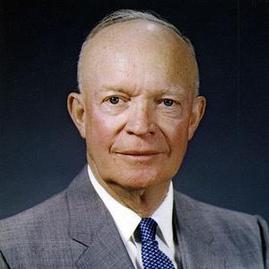
Washington, DC, is full of grand tributes to US presidents who are judged to have made remarkable contributions to the nation and the world.
They include monuments or memorials to George Washington, Thomas Jefferson, Abraham Lincoln, and, most recently, Franklin Delano Roosevelt.
Over the past few years, plans have progressed to honor the nation's 34th president, Republican Dwight D. Eisenhower, as well. "Ike," as his friends - and the nation - liked to call him, served from 1953 to 1961. He was immensely popular, thanks to his US Army exploits in which he led Allied forces to victory over Germany in World War II.
Eisenhower got more recent acclaim in 2002 when the huge Old Executive Office Building, next door to the White House, was renamed in his honor. But a group of supporters worked to get him his own memorial as well, and a commission was appointed to make it happen.

It chose a location just across Independence Avenue from the Washington National Mall - and incidentally, next door to our Voice of America headquarters building. And it approved a park-like design by modernist architect Frank Gehry, which emphasizes Eisenhower's pastoral youth in rural Kansas.
Scenes from the war and Ike's presidency appear on a series of tapestries in the background, near the US Department of Education Building.
But some architectural critics and some of Ike's descendants roundly criticized the design.They want to put a halt to what they call the "fast track" to getting the monument built by 2015.
In a letter to the National Capital Planning Commission, the family members argue that the design does not adequately recognize Eisenhower's military and national leadership. They maintain that it dwells far too much on his roots as a "barefoot boy from Kansas."
The family also argues that Gehry's tapestries would "not likely be sustainable over the centuries."
Congress heard about all this, loud and clear. And next Tuesday at the US Capitol, down the street from the proposed Eisenhower Memorial, a committee of the House of Representatives has scheduled hearings on the controversy.
American history: the election of 1952
(来源:VOA 编辑:Rosy)
